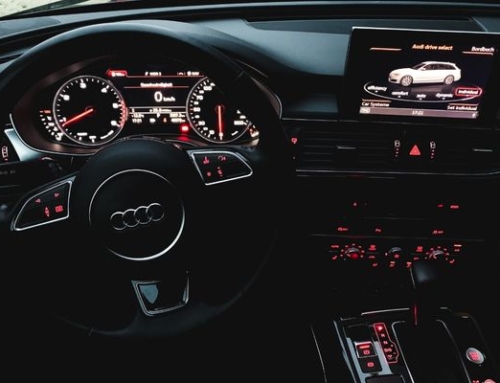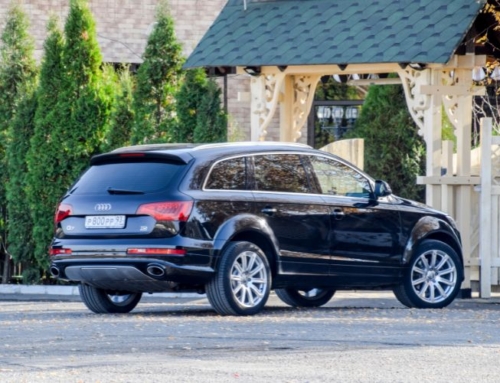Your Audi’s brakes and brake system are critical for your vehicle’s premium and safe operation. Many components must function together seamlessly; these parts are designed to wear out over time and be replaced. Some parts encounter more wear than others and must be replaced more often, like brake pads. Brake service at your local Charleston Audi repair shop can inspect and replace worn brake system components to keep you and your family safe.
Brake Pads 101
Your Audi braking system operates by friction to slow and stop the vehicle. The brake pads are the primary friction component that grips the wheel rotors to slow and stop their rotation. You press the brake pedal, and the system exerts pressure on the brake pads, bringing you to a safe stop. As these pads wear out, exerting the right amount of gripping force to slow your vehicle takes more pressure. You may even notice that you must press the brake pedal harder to stop your car over time. This is a good indication that a brake inspection is needed.
Brake pads can last from 30,000 to 70,000 miles, depending on your driving habits, vehicle weight, and the type of pads you install. Your Audi’s service manual shows the recommended replacement interval, but a brake system check at your local Low County Audi repair shop can let you know if it’s time for pad replacements.
Ottohaus of Charleston can install the right size and type of brake pad recommended for your Audi. The most common types include:
- Semi-Metallic: These are the most common, containing between 30% and 60% metal plus some other materials. They work to stop your car and handle heat well. But they can wear down your rotors quicker than other types.
- Non-Asbestos Organic: These pads are softer and quieter, made from Kevlar and other organic materials. They last longer but create more brake dust.
- Ceramic: These pads are the most expensive type and are made from ceramic fibers. They are quieter, produce less dust, and last longer than others.
How to Know Your Brake Pads Are Wearing Out
Your Audi will emit warning signals that your brake pads are wearing out. Watch and listen for the following signs:
- Noisy or vibrating brakes: Excess brake dust or worn pads will make noise or cause vibration you can feel when braking.
- Squeaking or squealing noises: Frequent noises can indicate brake pad wear or another brake system problem.
- Metallic grinding noise: Metal-to-sounds indicate that the brake pad material has worn away and the pad frame is rubbing against the brake rotor. This causes serious damage.
- Car pulls to one side: Uneven brake pad wear can cause the car to steer left or right when braking.
- Indicator light: Some vehicles have a brake system warning light to alert you of a brake problem or if it is time to replace the brake pads.
- Visual check: If anything looks unusual or your brake pads appear thin when viewed through your wheels, visit your local Audi repair shop soon for a complete brake inspection.
How to Make Your Brake Pads Last Longer
Many factors impact how long your brake pads will last. You can extend the life of your brake pads by moderating your speed and driving habits. Sudden or hard braking causes more wear so slow down gradually. Carrying heavy loads also places more stress on your brake pads. They must work harder as you brake harder to slow down more weight. Remove extra or unnecessary items from your trunk or vehicle to help your brake pads last longer.
Schedule a Brake Inspection at Ottohaus — Your Local Audi Repair Shop in Charleston
Your Audi’s brakes are designed to wear out over time as they work to keep you safe. Routine brake inspections at regular intervals can help keep your entire brake system functioning normally. Ottohaus of Charleston has two locations with trained and experienced Audi technicians who can inspect your brakes and recommend any needed service, like brake pad replacements.
Contact our Charleston or North Charleston locations to schedule an Audi brake inspection today.





